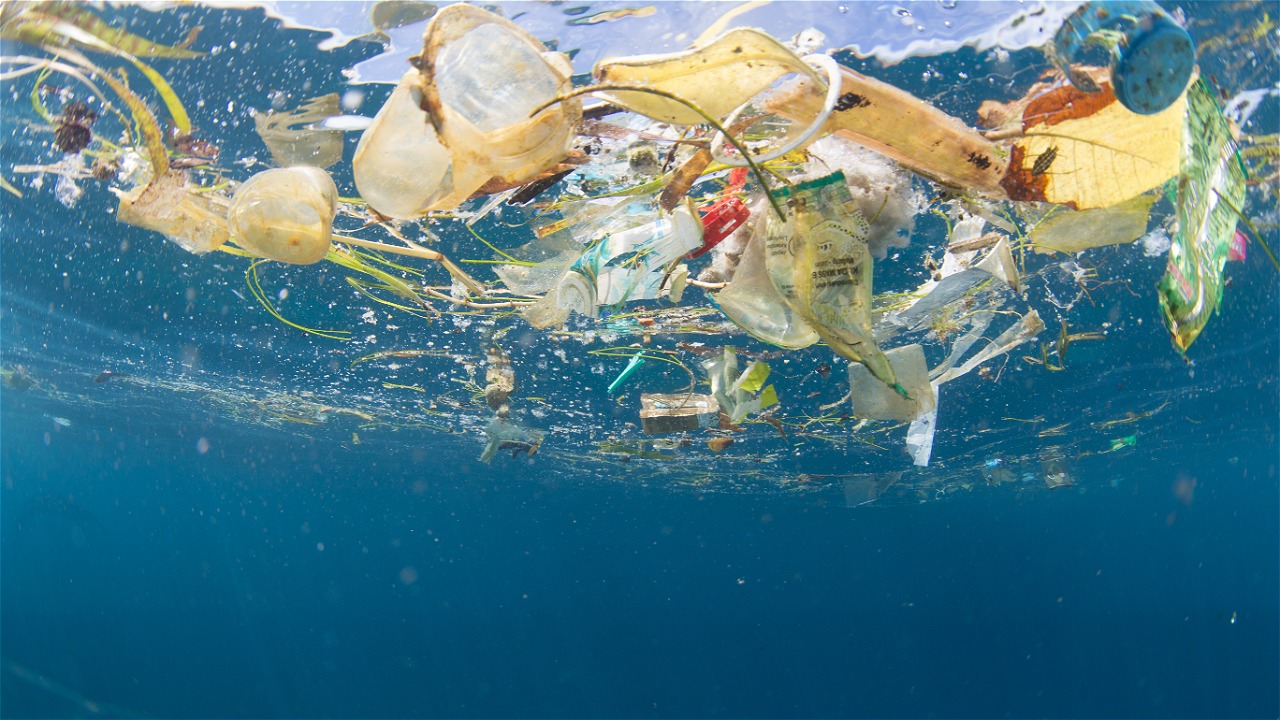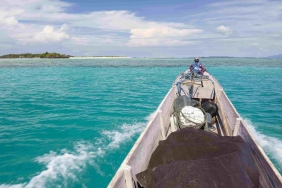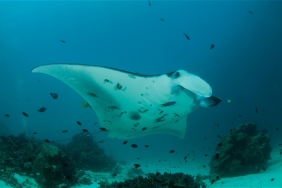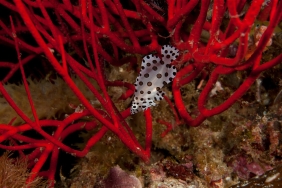BALI JOURNALISTS READY TO PRACTICE RESPONSIBLE MARINE TOURISM
By: Adella Adiningtyas (Marine and Fishery Campaign and Social Media Assistant)
"Indonesia is now included in the category of 10 countries that contribute to marine litter, this situation not only reduces the beauty of the sea but also poses another danger, where plastic waste is seen as food for certain fish," explained Jensi Sartin, Marine Protected Area (MPA) Manager for the West Manggarai region when opening the talkshow interacting with marine mammals and marine tourism which was attended by a number of journalists in Nusa Dua, Bali (November 3).
"Now, the question for all of us, is Indonesia's sea safe enough at this time?"
No! Not safe at all. Indonesia is currently working to reduce plastic waste in the ocean. This is not easy due to a number of factors; unavailability of facilities, open access from one island to another, lack of law enforcement for those who dump garbage and weather changes contributing by bringing garbage from land to sea - and polluting not only Indonesia but also other countries' territorial waters. For certain species, plastic waste, such as clear plastic floating in the sea, is often mistaken for food. There have been cases of seabirds dying from eating plastic, sea turtles becoming entangled in plastic, or fish eating plastic particles. Further, waste is no longer an aesthetic problem but also a political one due to the negative impacts it has on resources and people.
"It is possible that the fish we eat are contaminated with plastic particles," continues Jensi. "Now how do we reduce this pressure on marine resources?"
WWF Indonesia's marine tourism program plays a role by encouraging as many individuals as possible to participate in reducing pressure on the ocean. A number of workshops and trainings have been given to a number of target groups; tourism operators, communities, government. "We invite as many people as possible to realize that whatever they do, such as throwing away the smallest amount of garbage, directly contributes to the surrounding nature," explained Ayu Ginanjar Syukur, WWF Indonesia's Marine Ecotourism Improvement Program officer. "We need support so that everyone has a high commitment to reduce the pressure on nature. This time WWF invites Balinese journalists, who notabene can be the spearhead of information exchange through the media," said Ayu.
Journalists who participated in the talk show and training were 68 H Jakarta News Agency, Bali Tribune, Metro Bali, Cendana News, Bali Puspa and representatives of Nusa Dua business practitioners. For one full day, the journalists were invited to recognize the sea and the threats that arise today. Two facilitators, Pariama Hutasoit and I Made Jaya Ratha accompanied the journalists during the introduction of the sea and marine mammals.
Maritime Tourism
WWF Indonesia's talk show and training on how to interact with marine mammals and marine tourism was introduced with two methods; first, to refresh journalists' insights on the issue of aquatic resources and ecosystems that are sensitive to human treatment. Second; practicing these insights directly. The journalists had the opportunity to snorkel at Mengiat Beach Nusa Dua and simulate the practice of marine mammal observation practices.
"Often many do not know what is the right distance when observing dolphins, or how to properly observe turtles," said Made Jaya Ratha.
For turtles, for example, the right actions when observing are not disturbing the turtle nesting site, not leaving objects that prevent turtles from climbing to the beach to lay eggs, not making noise at the turtle nesting site, and using a dim light that is used as needed. This is because sea turtles are very sensitive to light and sound.
"Journalists are also invited to see first-hand coral reefs that are growing and undergoing maintenance after heavy damage in the past," explained Pariama Hutasoit. "This process is expected to help journalists understand that the life span and growth of coral reefs depends on how people behave towards the reefs," she said.
The increasing population of tourists in the waters can trigger damage to coral reefs. According to WWF Indonesia's guidelines, inexperienced and irresponsible divers and snorkelers can destroy corals or surrounding organisms. In addition, stirred and raised substrates muddy the water column and can cover and kill coral colonies and ultimately affect the reef ecosystem as a whole.
Others, excessive disturbance makes marine animals leave their foraging and breeding areas. Animals are critical to the sustainability of the entire ecosystem. Their disappearance can change the pattern of feeding networks between animals in the marine ecosystem and can affect the quality of the environment at large.
Increased vulnerability of corals. When there is continuous direct or indirect contact with divers and snorkelers, corals are stressed and produce excessive mucus, which can increase their vulnerability to disease, viruses, and other competing organisms. Further impacts are coral discoloration and death. Decreased levels of biodiversity. Overexploitation of certain fish species can affect the ecosystem as a whole.
"When coral reefs are damaged, the implications are felt directly for the surrounding community, such as loss of tourism and fisheries resources and damage to coastal protection. Waste management is just one of our real actions to improve the environment, on the other hand we need a high commitment to preserve nature," said Pariama.
Djoko Moeljono, a journalist from the Bali Tribune, said that hands-on practice at sea gave him a different perspective on marine tourism and species observation. "This is very helpful for us," he said enthusiastically.
Beyond understanding these best practices, practitioners and individuals can also conduct surveillance through the #TemanTamanLaut application. This application can be downloaded on PlayStore. The app allows anyone to rate a water area and report irresponsible activities. Ready to be a responsible traveler? Let's dive into the beauty of Indonesia's seas, get to know its biodiversity and become a #TemanTamanLaut!





